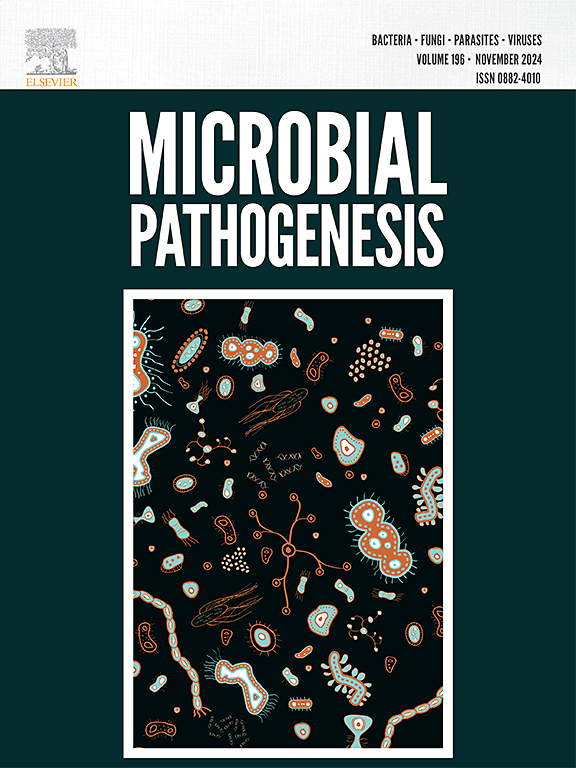巴西蝙蝠(脊椎动物,哺乳动物)中钩端螺旋体的血清学和分子学调查。
IF 3.3
3区 医学
Q3 IMMUNOLOGY
引用次数: 0
摘要
蝙蝠在生态系统中发挥着至关重要的作用,但人们对蝙蝠作为人畜共患病细菌(包括钩端螺旋体)的潜在携带者表示担忧。 由于缺乏对巴西蝙蝠携带者状况的了解,本研究旨在评估巴西四个州(圣保罗州、帕拉伊巴州、伯南布哥州和塞阿拉州)的蝙蝠体内是否存在针对钩端螺旋体及其 DNA 的抗体。蝙蝠是用雾网捕获的,并按性别、年龄和种类进行分类。通过显微凝集试验(MAT)检测了 22 只蝙蝠的抗体。此外,还对 168 份肾脏样本和 9 份尿液样本进行了 PCR 检测。在检测的 177 份样本中,有 2 份(1.13%)在 PCR 检测中呈阳性,而在显微镜凝集试验(MAT)中则无任何反应。这些结果表明,蝙蝠感染钩端螺旋体的流行率很低,说明在研究地区,蝙蝠在向人类、家畜和野生动物传播钩端螺旋体病方面的作用有限。本文章由计算机程序翻译,如有差异,请以英文原文为准。
Serological and molecular investigation of Leptospira spp. In bats (Chiroptera, Mammalia) from Brazil
Bats play a crucial role in the ecosystem, yet concerns have arisen regarding their potential as carriers of zoonotic bacteria, including Leptospira spp. Due to the lack of knowledge about the carrier state of bats in Brazil, this study aimed to evaluate the presence of antibodies against Leptospira spp. and its DNA in bats from four Brazilian States (São Paulo, Paraíba, Pernambuco, and Ceará). Bats were captured using mist nets and categorized by sex, age, and species. Antibodies were searched in 22 bats via the microscopic agglutination test (MAT). Additionally, 168 kidney and nine urine samples were subjected to PCR for Leptospira spp. Out of 177 samples tested, two (1.13 %) were positive in PCR, while none showed reactivity in MAT. These results suggest a low prevalence of Leptospira spp. infection in bats, indicating a limited role in transmitting leptospirosis to humans, domestic animals, and wildlife in the studied region.
求助全文
通过发布文献求助,成功后即可免费获取论文全文。
去求助
来源期刊

Microbial pathogenesis
医学-免疫学
CiteScore
7.40
自引率
2.60%
发文量
472
审稿时长
56 days
期刊介绍:
Microbial Pathogenesis publishes original contributions and reviews about the molecular and cellular mechanisms of infectious diseases. It covers microbiology, host-pathogen interaction and immunology related to infectious agents, including bacteria, fungi, viruses and protozoa. It also accepts papers in the field of clinical microbiology, with the exception of case reports.
Research Areas Include:
-Pathogenesis
-Virulence factors
-Host susceptibility or resistance
-Immune mechanisms
-Identification, cloning and sequencing of relevant genes
-Genetic studies
-Viruses, prokaryotic organisms and protozoa
-Microbiota
-Systems biology related to infectious diseases
-Targets for vaccine design (pre-clinical studies)
 求助内容:
求助内容: 应助结果提醒方式:
应助结果提醒方式:


